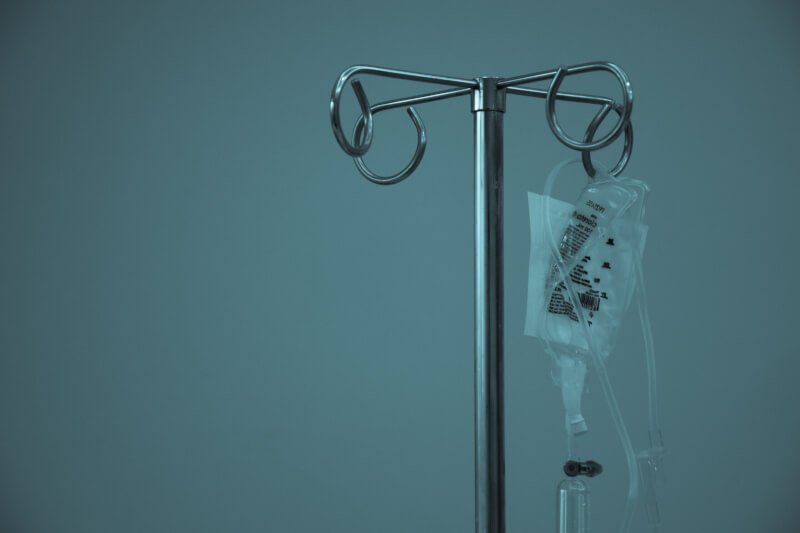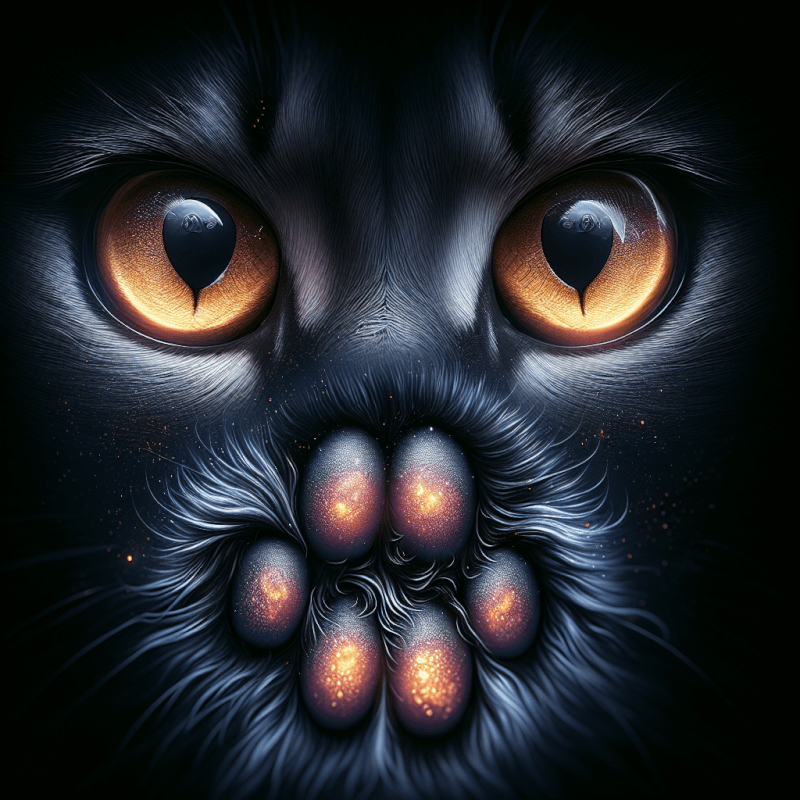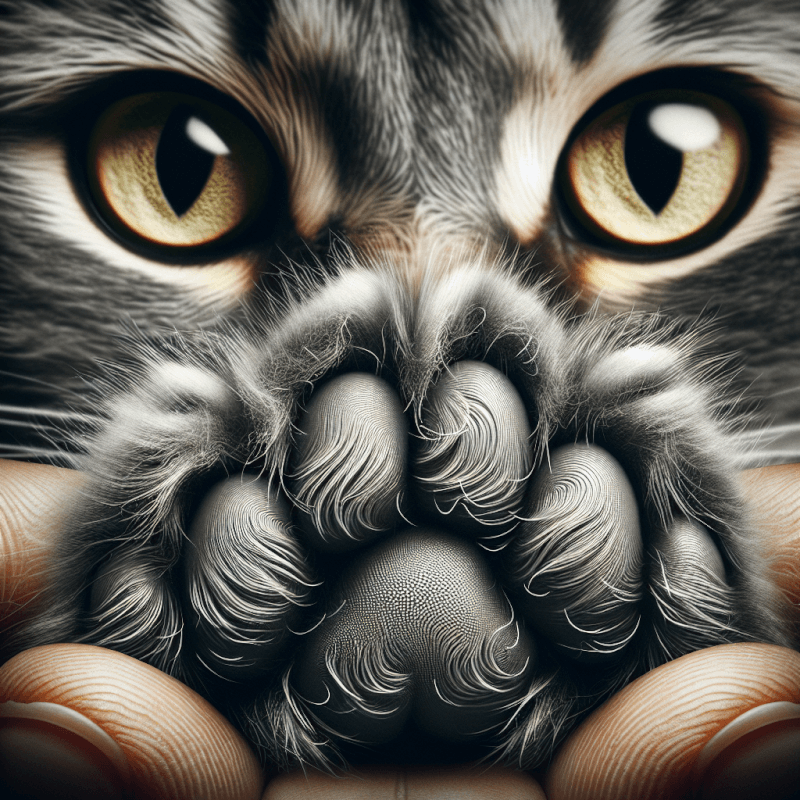Are you the loving owner of a feline companion? If so, you may often find yourself wondering how to discern whether your precious cat is feeling under the weather. Our beloved pets can’t verbally express their discomfort, but worry not! In this article, we will explore several key indicators that will help you determine if your furry friend is unwell. From changes in behavior to physical symptoms, we’ve got you covered. Keep reading to become a pro at recognizing the telltale signs of an ailing cat and providing them with the care they need.
Common Signs of Illness
When it comes to determining whether your cat is sick, there are some common signs that you should look out for. Changes in appetite can be indicative of an underlying health issue. If your cat suddenly loses interest in food or starts eating significantly less than usual, it could be a cause for concern. On the other hand, if your cat has an increased appetite and starts eating more than usual, it may also be a sign of illness.
Ready for Cat Trivia?
Test your knowledge about cats!

Changes in weight can also be a telling sign of your cat’s health. Weight loss or gain that is not associated with a change in diet or exercise can be concerning. Monitor your cat’s weight by keeping track of their body condition score and consult your veterinarian if you notice any significant changes.
Vomiting or diarrhea can occur in cats for various reasons, but it can also be a sign of illness. If your cat is experiencing frequent bouts of vomiting or diarrhea, it may indicate an underlying condition that needs to be addressed.
Changes in urination patterns can also be indicative of illness. If you notice your cat urinating more frequently than usual or struggling to urinate, it may be a sign of a urinary tract infection or other urinary-related issues. On the other hand, if your cat is urinating less frequently or not at all, it could be a sign of a blockage or kidney problem.
Coughing or sneezing can also be signs of illness in cats. While occasional coughing or sneezing may not be a cause for concern, persistent or chronic coughing or sneezing can be indicative of respiratory issues or infections.
Lethargy or decreased activity levels can be a sign that your cat is unwell. If your cat is normally active and playful, but suddenly becomes lethargic or shows a lack of interest in their usual activities, it may be worth investigating further.
Changes in grooming habits can also be a red flag. If your cat starts grooming excessively or stops grooming altogether, it could be a sign of an underlying health issue.
Changes in behavior can often be an indicator that something is not right with your cat’s health. If your typically friendly and sociable cat becomes withdrawn or aggressive, it may be worth seeking veterinary advice.
Visible signs of pain or discomfort should never be ignored. If your cat is showing signs of discomfort such as vocalizing, hiding, or panting, it is important to consult your veterinarian to determine the cause and provide appropriate treatment.
Lastly, breathing difficulties should always be taken seriously. If your cat is wheezing, has labored breathing, or shows signs of struggling to breathe, it is considered an emergency and immediate veterinary attention is required.
Physical Symptoms to Look For
In addition to the common signs of illness mentioned above, there are specific physical symptoms that you should be aware of. These symptoms can provide valuable insight into your cat’s health and help you determine if they are sick.
Abnormal body temperature can be an indicator of illness. Cats typically have a body temperature of around 100.5 to 102.5 degrees Fahrenheit. If your cat’s temperature deviates significantly from this range, it may be a sign of an underlying health issue.
Unusual body odor can also be a cause for concern. If your cat has a strong or foul odor that is not typical for them, it may indicate an infection or other health problem.
Checking your cat’s gums can provide valuable information about their health. Pale or yellowish gums can be a sign of anemia or liver disease. Healthy gums should be pink and moist.
Swollen or red eyes can indicate various eye conditions or infections. If you notice any changes in your cat’s eyes, such as redness, swelling, or discharge, it is important to have them examined by a veterinarian.
Discharge from the eyes, nose, or ears can also be a sign of infection or underlying health issue. If you notice any unusual or excessive discharge, it is best to consult your veterinarian.
Skin problems or rashes can occur for a multitude of reasons, including allergies, parasites, or infections. If you notice any changes in your cat’s skin, such as redness, flakiness, or hair loss, it is important to investigate further with the help of a veterinarian.
Visible wounds or injuries should never be ignored. If you notice any cuts, abrasions, or any other signs of trauma on your cat’s body, it is important to seek veterinary attention.
Limping or lameness can be a sign of musculoskeletal issues or injuries. If your cat is favoring a limb or showing any signs of difficulty moving, it is important to have them evaluated by a veterinarian.
Abnormal swelling or lumps on your cat’s body should always be investigated. While some lumps may be harmless, others can be indicative of tumors or other serious health conditions.
Hair loss or excessive shedding can be a sign of underlying health problems, such as hormonal imbalances or skin conditions. If you notice significant hair loss or changes in your cat’s fur, it is important to consult your veterinarian.

Changes in Eating and Drinking
Monitoring your cat’s eating and drinking habits can provide valuable insights into their health. Changes in these habits can indicate underlying health issues that need attention.
A loss of appetite can be a cause for concern. If your cat suddenly loses interest in food or refuses to eat altogether, it may be a sign of illness. It is important to monitor their food intake and consult your veterinarian if the loss of appetite persists.
Excessive thirst can also be a sign of underlying health problems. If your cat is constantly drinking large amounts of water or seems excessively thirsty, it may indicate issues with their kidneys or other organs. It is important to monitor their water intake and consult your veterinarian if you notice any significant changes.
Difficulty eating or swallowing should never be ignored. If your cat is struggling to eat or displaying signs of discomfort while eating, it may indicate dental problems or other health issues. Consult your veterinarian for a thorough examination.
Unexplained weight loss or gain can be a sign that something is not right with your cat’s health. If you notice significant changes in your cat’s weight without a change in diet or exercise, it is important to consult your veterinarian to determine the underlying cause.
Vomiting after eating can occur for various reasons, but it can also be a sign of underlying health issues. If your cat consistently vomits shortly after eating, it may indicate gastrointestinal problems or food allergies. Consult your veterinarian for a proper evaluation.
Changes in food preferences can also be a sign of illness. If your cat suddenly refuses to eat their usual food or shows a strong preference for different types of food, it may be a sign of underlying health issues. Consult your veterinarian for guidance on appropriate dietary changes.
Excessive drooling can be a sign of dental issues or mouth discomfort. While some cats naturally drool more than others, persistent or excessive drooling should be investigated further.
Bad breath or oral problems can indicate dental disease or other underlying health issues. If your cat has consistently foul-smelling breath or shows signs of oral discomfort, it is important to consult your veterinarian for a dental examination.
Regurgitation or choking can occur if your cat has difficulty swallowing or if there is an obstruction in their esophagus. If you notice your cat frequently coughing up food or liquids or displaying signs of choking, it is important to seek veterinary attention.
Digestive Issues
Digestive issues can be quite common in cats and can be caused by various factors. Monitoring your cat’s bowel movements and any changes in their digestion can help identify potential health problems.
Diarrhea is characterized by loose or watery stools and can be a sign of gastrointestinal issues or dietary intolerance. While occasional episodes of diarrhea may not be cause for alarm, persistent or recurrent diarrhea should be addressed by your veterinarian.
Constipation, on the other hand, is characterized by infrequent or difficult bowel movements. If your cat is straining in the litter box or producing hard, dry stools, it may indicate constipation. Consult your veterinarian for guidance on how to alleviate constipation and promote regular bowel movements.
Blood in the stool can be a cause for concern and should be evaluated by a veterinarian as soon as possible. It can indicate various health issues, including gastrointestinal bleeding or internal injuries.
Changes in stool appearance, such as color or texture, can also provide valuable insights into your cat’s health. If you notice any significant changes in your cat’s stool, such as black, tarry stools or mucus-covered stools, it may indicate an underlying health problem.
Abdominal pain or discomfort can be indicated by your cat displaying restlessness, vocalization, or sensitivity to touch in the abdominal area. If you suspect that your cat is in pain, it is important to consult your veterinarian for a proper diagnosis and appropriate pain management.

Respiratory Problems
Respiratory problems can range from mild infections to more serious conditions that require immediate veterinary attention. Monitoring your cat’s respiratory system and recognizing any abnormalities can help ensure prompt treatment.
Coughing in cats can be caused by various factors, including respiratory infections, allergies, or asthma. If your cat develops a persistent or chronic cough, it is important to consult your veterinarian for a proper diagnosis and treatment plan.
Sneezing is a common response to irritants in the air, but persistent or excessive sneezing can indicate an underlying respiratory issue. If your cat is sneezing frequently or has accompanying nasal discharge, it is important to consult your veterinarian to determine the cause and appropriate treatment.
Runny or stuffy nose can indicate an upper respiratory infection or other nasal issues. If your cat’s nose is consistently runny or blocked, it is important to consult your veterinarian for appropriate treatment options.
Wheezing or labored breathing can be indicative of respiratory problems or asthma. If your cat is making unusual sounds while breathing or shows signs of struggling to breathe, it is considered an emergency and immediate veterinary attention is required.
Blue or pale gums can be a sign of reduced oxygen levels in the blood, which can indicate respiratory or cardiovascular issues. If you notice any changes in your cat’s gum color, it is important to seek veterinary attention immediately.
Frequent panting in cats can be a sign of respiratory distress or overheating. While some cats may pant after exertion or in hot environments, excessive or persistent panting should be evaluated by a veterinarian.
Urinary Tract Problems
Urinary tract problems are common in cats and can range from mild infections to more serious conditions, such as urinary blockages. Monitoring your cat’s urinary habits can help identify potential issues.
Frequent urination can indicate urinary tract infections or other urinary-related issues. If your cat is making frequent visits to the litter box and producing small amounts of urine, it may be a sign of a problem. Similarly, if your cat is consistently urinating outside of the litter box, it may indicate a urinary issue.
Difficulty urinating or straining while urinating can be indicative of a blockage or discomfort in the urinary tract. It is important to seek veterinary attention immediately if your cat is unable to urinate, as it can quickly become a life-threatening condition.
Blood in the urine is known as hematuria and can be a symptom of urinary tract infections, bladder stones, or other issues. If you notice discoloration or blood in your cat’s urine, it is important to seek veterinary attention for a proper diagnosis and treatment plan.
Excessive licking of the genital area can be a sign of discomfort or irritation in the urinary tract. If your cat is constantly grooming their genital area or shows signs of discomfort while urinating, it is important to consult your veterinarian.

Behavioral Changes
Monitoring changes in your cat’s behavior can help you identify early signs of illness. Cats are masters at hiding pain or discomfort, so it is important to pay attention to their behavior and seek veterinary attention if you notice any significant changes.
Increased aggression can be a sign of underlying pain or discomfort. If your cat becomes more aggressive, especially when touched or approached, it may indicate an underlying health issue. Consult your veterinarian to rule out any medical causes for the aggression.
Excessive vocalization can be a sign that your cat is in distress. If your cat is meowing or yowling more than usual, it may be an indication of pain or discomfort. Consult your veterinarian to determine the cause and appropriate treatment.
Hiding or isolation can be a common response in cats when they are feeling unwell. If your cat starts hiding in unusual places or avoids social interaction, it may be a sign that they are not feeling their best. Monitor their behavior and consult your veterinarian if the behavior persists.
Lethargy or decreased activity can be a general symptom of illness in cats. If your cat is normally active and playful but suddenly becomes lethargic or shows a lack of interest in their usual activities, it may be a sign that they are sick.
Unusual sleep patterns can be indicative of an underlying health issue. If your cat’s sleep patterns change significantly, such as excessive sleeping or difficulty sleeping, it may be worth investigating further with the help of a veterinarian.
Changes in litter box habits can be a sign of urinary or gastrointestinal issues. If your cat starts avoiding the litter box or displays changes in their urination/defecation habits, it may indicate an underlying health problem. Consult your veterinarian for guidance.
Excessive grooming or self-mutilation can be a sign of discomfort or underlying skin conditions. If your cat is constantly licking or biting their fur, causing hair loss or skin damage, it is important to consult your veterinarian to determine the cause and appropriate treatment.
Restlessness or pacing can be a sign that your cat is in pain or discomfort. If your cat is constantly moving, unable to settle down, or appears agitated, it may be a sign that something is not right. Consult your veterinarian to determine the cause and appropriate treatment.
Avoidance of physical contact can be a sign that your cat is feeling unwell. If your cat suddenly becomes more distant, avoids being touched, or displays signs of discomfort when handled, it may indicate an underlying health issue. Consult your veterinarian for a proper examination.
Eye and Ear Problems
Monitoring your cat’s eyes and ears can help identify potential issues and ensure their overall health and well-being.
Redness or swelling of the eyes can indicate various eye conditions or infections. If you notice any changes in your cat’s eyes, such as redness, swelling, or discharge, it is important to have them examined by a veterinarian.
Discharge from the eyes can be a sign of infection or other underlying health issues. If you notice any unusual or excessive discharge from your cat’s eyes, it is best to consult your veterinarian for an evaluation and appropriate treatment.
Cloudiness or changes in eye color can be indicative of certain eye conditions, such as cataracts or glaucoma. If you notice any changes in your cat’s eye color or a haziness in their eyes, it is important to consult your veterinarian for a proper evaluation.
Rubbing or pawing at the eyes can indicate discomfort or irritation. Excessive scratching or rubbing at the eyes can lead to further damage and potential infections. If your cat displays these behaviors, it is important to have them examined by a veterinarian.
Squinting or excessive blinking can be a sign of eye pain or discomfort. If your cat is constantly squinting or blinking, it may indicate underlying eye issues. Consult your veterinarian for a proper examination and appropriate treatment.
Ear discharge or odor can be a sign of ear infections or other ear-related problems. If you notice any unusual or excessive discharge from your cat’s ears or detect a foul odor, it is important to consult your veterinarian for appropriate treatment options.
Head shaking or tilting can be indicative of ear issues, such as ear infections or ear mites. If your cat is constantly shaking their head or tilting it to one side, it may require veterinary attention to diagnose and treat the underlying issue.
Loss of balance or coordination can be indicative of ear problems or underlying neurological issues. If your cat is displaying signs of balance issues or seems unsteady on their feet, it is important to seek veterinary attention.

Musculoskeletal Issues
Monitoring your cat’s musculoskeletal health is vital, especially as they age. Recognizing any signs of discomfort or mobility issues can help ensure their overall well-being.
Limping or lameness can indicate musculoskeletal issues or injuries. If your cat is favoring a limb, showing signs of pain or difficulty walking, it is important to have them evaluated by a veterinarian for a proper diagnosis and treatment plan.
Reluctance to jump or climb may be a sign of joint pain or arthritis, especially in older cats. If your cat is showing aversion to activities they previously enjoyed, it may be a signal that they are experiencing musculoskeletal discomfort.
Stiffness or difficulty moving can be indicative of joint issues or underlying health conditions. If your cat is having trouble getting up, moving, or is generally less agile, it may be time to consult your veterinarian for a thorough examination.
Swollen or painful joints can be a symptom of arthritis or other joint-related problems. If you notice any signs of swelling, heat, or tenderness around your cat’s joints, it is important to seek veterinary attention.
Muscle wasting or weakness can be a sign of various health conditions, including muscle or nerve disorders. If you notice any changes in your cat’s muscle tone or overall strength, it is important to consult your veterinarian for a proper evaluation.
Back or neck pain can be indicated by your cat displaying signs of discomfort, such as vocalizing, sensitivity to touch, or changes in posture. If you suspect that your cat is in pain, it is important to seek veterinary attention for a proper diagnosis and appropriate pain management.
Emergency Warning Signs
Some signs of illness or distress in cats require immediate veterinary attention. If you notice any of the following emergency warning signs, it is crucial to seek veterinary care without delay.
Severe or prolonged vomiting can lead to dehydration and other serious health issues. If your cat is continuously vomiting or cannot keep any food or water down, it is considered an emergency and immediate veterinary attention is required.
Inability to urinate is a life-threatening condition. If your cat is straining in the litter box but unable to pass urine, it may indicate a urinary blockage. This condition requires immediate veterinary attention to prevent further complications.
Difficulty breathing is always a cause for concern. If your cat is struggling to breathe or shows signs of respiratory distress, it is considered an emergency. Seek veterinary attention immediately.
Seizures or convulsions can occur in cats and can be indicative of underlying neurological issues or other health problems. If your cat experiences a seizure, it is important to seek veterinary attention as soon as possible.
Uncontrolled bleeding should always be taken seriously. If your cat is bleeding profusely from a wound or shows signs of internal bleeding, it is important to seek veterinary attention immediately.
Loss of consciousness can occur if your cat is seriously ill or experiencing a medical emergency. If your cat is unresponsive or unconscious, it is considered an emergency and immediate veterinary attention is required.
Severe trauma or injury, such as being hit by a car or falling from a height, requires immediate veterinary attention. Even if there are no visible external injuries, there may be internal damage that needs to be addressed.
Extreme lethargy or collapse can be a sign of a critical health condition. If your cat is unresponsive, unable to move, or shows signs of extreme weakness, it is considered an emergency and immediate veterinary attention is required.
Sudden paralysis can be indicative of spinal cord injuries or other serious health conditions. If your cat suddenly loses the ability to move their limbs or displays signs of paralysis, it is important to seek veterinary attention immediately.
Disorientation or confusion can be indicative of underlying health issues or neurological problems. If your cat is disoriented, unable to navigate their surroundings, or shows signs of confusion, it is important to consult your veterinarian for a proper evaluation and diagnosis.
In conclusion, recognizing the signs of illness in your cat is crucial for their health and well-being. By monitoring their behavior, physical symptoms, and any changes in eating, drinking, or elimination habits, you can identify potential health issues early and seek appropriate veterinary care. Remember, if you notice any emergency warning signs, it is important to seek immediate veterinary attention. Your friendly veterinarian is there to help and provide the necessary care for your feline friend.



